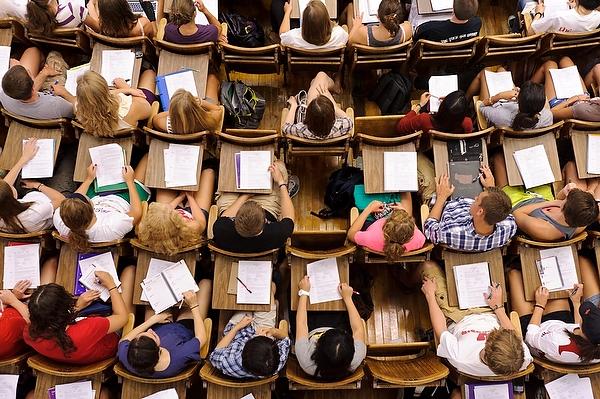Despite the perception that syllabus week is supposed to be a care-free time one can use to reunite with friends, I already found myself drowning in work just a few short days into this new semester.
After taking on more credits this semester, these extra assignments were to be expected, but it was the insurmountable quantity of physical paper that overwhelmed me the most.
Hitlist: Syllabus week got you down? Cheer up with these tunes
It is quite common for teaching assistants and professors to have strict regulations against cellphone use in class, but, until now, I have never once been subjected to a so-called “technology-free” policy.
With this policy, the use of any electronic device during class, both lecture and discussion, are prohibited. Each student is expected to have a printed-out copy of each reading assignment on their desk in class each week.
Individual educators have the right to their own teaching methods, but the great leaps in technological advancement should not be completely ignored within the classroom. It seems a bit radical to completely cut students off from all ties with modern devices.
But, in the pursuit of progression, the main idea is to create a world in which people can live in a better environment — an environment that allows improvement throughout all fields including medicine, agriculture and especially education.
iPads push paper out of the classroom in UW Executive MBA Program
In spite of what some may want to believe, technology has created an enhanced lifestyle full of greater opportunities.
It can be argued the preceding generation did not have high-speed internet, fancy laptops or tablets in class and they still did well for themselves. But there is no need to resort back to the archaic ways of our parents to papyrus, quail feathers and ink.
The previously executed methods for note taking and writing are completely obsolete. No one even has to step foot in a library anymore (even though you probably should because they are the most prime locations for studying). Some teachers must let go and accept the fact that things change and in some instances they change quite rapidly and for the better.
We should not abandon the good ol’ pencil, but we should embrace the keyboard. Rather than educators resenting technology as one would the anti-Christ, they should utilize it to further the minds of their students. There are so many great resources that can make note taking, studying and organizing one’s assignments way easier.
12 head-turning introductions to use during first week of class
Let us not overlook the infuriating contradiction in the fact that all of these assignments for the so-called “tech-free” classes are posted online.
Students rely on computer access to obtain class updates and to locate passages for further analysis in discussion sections and lectures. In some twisted lack of reasoning, some educators believe it is necessary to print out every single page instead of simply allowing students to read off their screens.
Not only does this physically inconvenience students, but it also adds onto financial stress. Buying a printer, ink cartridges and printing paper, or having to locate a printer at a public library and pay for each individual printed page, poses an additional fee to the price of a higher education.
On a broader scale, beyond the lives of young college students, this policy serves as a disadvantage to all other world citizens due to environmental waste.
Engineering professors say ‘flipped classroom’ approach improves learning
Considering there clearly is no dire need for this paper use in the first place, it forces students to destroy the environment.
A week’s worth of readings should not be heavier than a small child (a slight exaggeration).
The discrepancies that exist in “tech-free” classrooms draw attention to a larger theme of our often careless attitude toward environmental damage — damage that could possibly be prevented with changes like the allowance of tech in classes.
Jill Kazlow ([email protected]) is a freshman intending to major in journalism.














